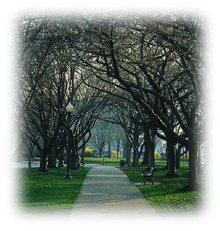 Background BackgroundGene Isom served in the US Army
for seven years, from January 1947 through January 1954. He took basic training at Fort Knox, Kentucky, and
then went on to communication school at Ft Monmouth, New Jersey. He spent the remainder of his first three
year hitch at Ft. Shafter, Hawaii, with most of that time installing telephones in the Trippler General
Hospital being built at that time. Gene reenlisted and was sent to Ft. Lewis, Washington, where he was
attached to the 2nd Infantry Division. He was shipped over to Korea shortly after the war started in June of
1950. He served in Korea with the 205th Signal Repair Company, 8th Army. The 205th was made up of five
repair teams (Radio and Telephone equipment) that traveled throughout Korea, attached to different divisions
and units for short periods of time. Isom rotated back to the States in November 1051.
After spending one year at San Louis Obisbo, California, he volunteered to return to Korea for a second
tour, but upon arrival in Japan, he was assigned to Tokyo, maintaining communication (teletype) equipment
for most military installations in the Tokyo area. He was discharged in January 1954, and then married his
hometown sweetheart. He then Joined the Air Force in June 1954 and spent the remainder of his military
career with Strategic Air Command (SAC) as a B-52 Crew Chief, while being assigned at several different SAC
bases throughout the U.S. After his military service, he joined Eastern Airlines and worked in several
different capacities over the next 21 years (Passenger services as agent, Supervisor, Quality Control, Sales
and Chief Agent), retiring in 1991. He now lives in Gainesville, Florida, with his sweetheart of 48 years.
The couple spends half of their time at their place on Horseshoe Lake, in Southern Illinois.
The Old Korean Veteran poem was written several years ago just before Christmas. While stopped at a stop
light, an old man in very ragged clothes was sitting on the corner holding up a sing that read, "Will Work
for Food". Gene Isom found nothing unusual about the sign at first glance. He tells the Korean War Educator
that he has always had a sad, melancholy feeling every time he sees these poor unfortunate souls. However it
was when he noticed the two words at the bottom of the sign--"Korean Vet"--that caused him the most anguish.
He said that he tried to forget and drive on, but for the next couple hours while trying to shop, he
couldn't get his mind off the old Korean veteran. "I finally gave up any attempt at shopping and drove back
to where he had been sitting," said Isom. "But he was gone. For the next few days I would purposely drive
back that way to see if he would come back. A few days later, I wrote the Old Korean Vet." |
The Old Korean Veteran
The sign he held though seen before
held no words of profundity.
"Will work for food," large and bold
were the words I first did see.
It was the next two words I read
that gave my heart a pull, and yet
I wanted not to feel akin
to this old Korean vet.
I quickly turned my eyes away
toward the light that held stubbornly red
and wished it would hurriedly turn to green
so I could be somewhere else instead.
The stores that day were dressed with cheer
as I shopped with a will to spend,
but I couldn't forget that down and out vet;
could he be a long lost friend?
Could we have marched side by side
on some long ago parade ground?
Could we have shared a smoke or two
while leisurely lounging around?
Was he close by one frigid night
when death appeared at hand?
Did he have thoughts the same as I
in that far off distant land?
With at last our duty done
and we returned to friendly shores;
with no bands to play and no one to cheer,
could he not return to life as before?
My mind turned inward as I milled around.
No more thoughts of shopping this day.
I hastily returned to the place last seen,
but the old vet had gone away.
Time and again I would return to see
if by chance we yet could meet,
to talk awhile and reminisce,
while squatting by a busy street.
That vet has now become a long lost friend,
although we may never have met
and of this I know, I'll never forget
that old Korean vet.
|



